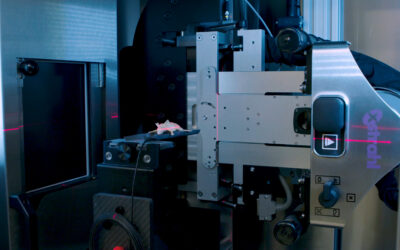Rhabdomyosarcoma (RMS) is the most common soft tissue malignancy in children. Despite intensive research in recent decades the prognosis for patients with metastatic or relapsed diseases has only marginally improved. New therapeutic concepts in anti-tumor therapy aim to modulate the patient’s immune system to increase its aggressiveness or targeted effects toward tumor cells.
Using radiotherapy with immune activation by direct application of cytokines, antibodies or adoptive cell therapy is a promising approach thanks to the newly discovered roles of natural killer cells (NK). However, the main challenge for this type of therapy is the requirement for high amounts of functional NK cells.
The study “A Two-Phase Expansion Protocol Combining Interleukin (IL)-15 and IL-21 Improves Natural Killer Cell Proliferation and Cytotoxicity against Rhabdomyosarcoma” J Wagner, V Pfannenstiel, A Waldmann, JWJ Bergs, B Brill, S Huenecke, T Klingebiel, F Rödel, C Buchholz, WS Wels, P Bader and E Ullrich, address the feeder cell-free expansion methods, and put together a proof of concept an in vivo study to observe the therapeutic effect of adoptively transferred IL-15 expanded and IL-21 boosted NK cells in combination with image guided high precision radiation therapy (SARRP).
Their results show that the two-phased feeder cell-free ex vivo culturing protocol combined efficient expansion and high cytolytic functionality of NK cells for treatment of radiation-resistant RMS.
To find out more about the science being conducted with Xstrahl Life Science systems you can learn more about the SARRP for the latest developments.
This Xstrahl In Action was adapted from a article found on a National Library of Medicine website.







